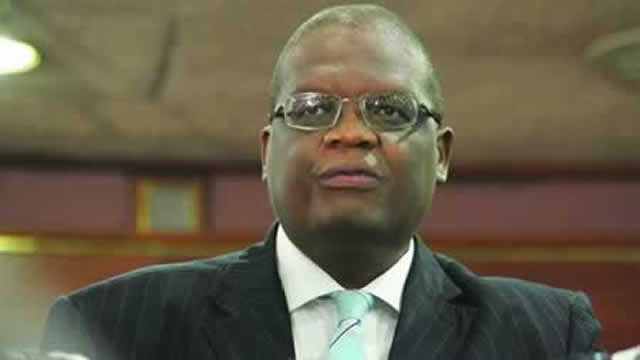Banks called to lower interest rates

Business Reporter
THE Reserve Bank of Zimbabwe says it has engaged banks to discuss the high cost of finance with a view to getting them to lower interest rates to an average of 15 percent.
RBZ Deputy Governor Dr Khupukile Mlambo said this during panel discussions at the Zimbabwe National Chamber of Commerce annual general meeting held in Victoria Falls last week.
The three-day congress was held under the theme “Addressing Competitiveness Challenges in the Emerging Economy”.
Dr Mlambo said the RBZ was trying to get the banks to lower their punitive interest rates regime through moral suasion to avoid a situation where the monetary authorities resorts to controls.
“The cost of finance is an issue, and I think that is very important. We are having discussions with banks right now to see if we can reduce bank charges. We do not want to go the route of controls because they (controls) only benefit a rent seeking group, but we need self-regulation from the banks,” he said.
The central bank deputy governor said excluding default charges, they had been able to convince banking institutions to lower their interest charges on individuals from an average 35 percent per annum, as the highest rate, to about 25 percent.
“We are hoping that in a few months we will be down to 15 percent. Looking at the cost of funds, the mark-up, if it is going to be high, over the cost funds should be around 5 percent. But, of course, we understand that the banks are struggling to raise these resources and they are also short term.”
Parliament last week took exception in that banks continued to levy exorbitant interest rates out of sync with the prevailing low inflation, making it difficult for business to be viable.
Bikita West MP Dr Munyaradzi Kereke said interest rates in Zimbabwe were too high, even nowhere near rates charged in war zones and demanded that Government intervenes to stem the situation.
Finance Minister Patrick Chinamasa said there were a number of reasons why the cost of money was prohibitively high in Zimbabwe, attributing the situation to the perception that the country was considered high risk, hence the premium placed on loans it gets.
The minister said he would not consider controls on interest rates, but market friendly measures to ensure funding is priced fairly.
Meanwhile, Dr Mlambo pointed out the fact that Zimbabwe was not taking full advantage of its membership with international financial institutions, which entitles it to certain rights and privileges on funding assistance despite its arrears.
“We need to engage, I know with the World Bank, IMF and AfDB for instance, we have arrears sanctions, these are not political, these are arrears sanctions that we owe them money and the statutes say that if you owe money over a certain period you are going to be sanctioned, but there are other monies in there that we can get,” Dr Mlambo told delegates.
He said the AfDB recently set up what is called the Africa50, which is raising money from African countries using reserves held by central banks and so far, $750 million has been mobilised through this initiative.
“We need to access such kinds of institutions so that when we worry about infrastructure (we can get the funds). The money is there, but we are not using the institutions as a country.”










Comments